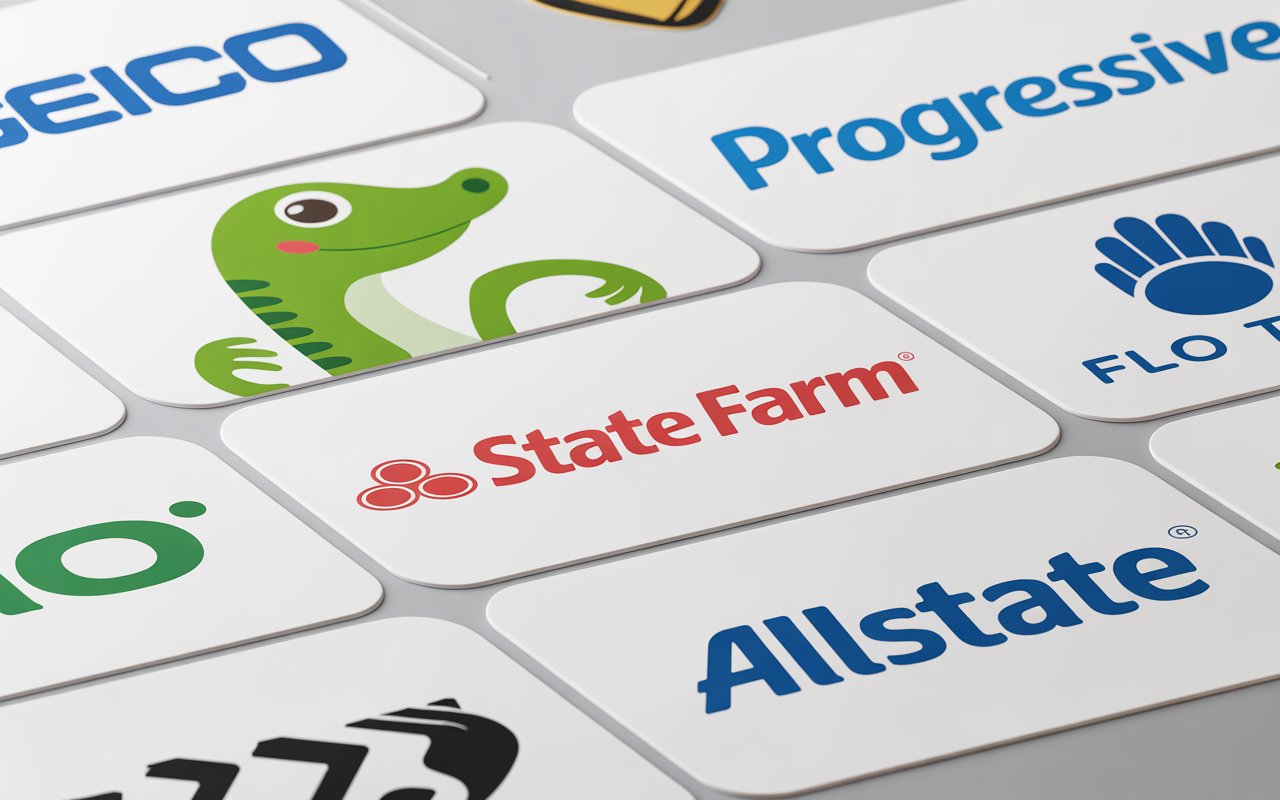Car insurance — it’s one of those things you don’t think much about until you really need it. Whether it’s a small dent in the parking lot or a major accident, your car insurance company can make all the difference in how smoothly things go afterward. But with so many insurers, plans, and terms floating around, how do you know which company is right for you?
In this comprehensive guide, we’ll dive deep into how car insurance companies work, what you should look for in a provider, how to compare plans, and what hidden factors could affect your premium. By the end, you’ll have a clear, down-to-earth understanding of how to make the best choice for your peace of mind and pocket.
What Is Car Insurance and Why Do You Need It?
Think of car insurance as a financial seatbelt — it protects you when the unexpected happens. Car insurance companies provide a contract (called a policy) where, in exchange for a monthly or yearly premium, they promise to cover certain costs if your car is damaged, stolen, or involved in an accident.
Without insurance, one bad crash could lead to overwhelming expenses. Repair costs, hospital bills, and legal liabilities can easily run into thousands of dollars — all of which a good insurance policy can help cover.
How Do Car Insurance Companies Work?
Car insurance companies operate by pooling risk. Imagine thousands of drivers paying premiums every month into one large pot. When someone gets into an accident, the company uses money from that pot to pay for repairs, medical costs, or replacements.
This system allows everyone to share the financial burden. The insurance company uses sophisticated data models to calculate each driver’s level of risk — which is why your premium might differ from your neighbor’s, even if you both drive similar cars.
Types of Car Insurance Coverage

Car insurance isn’t one-size-fits-all. Different companies offer different types of coverage, and it’s important to know what each means before signing up.
1. Liability Coverage
This is mandatory in most countries. It covers damage you cause to other people’s property or injuries to others in an accident where you’re at fault.
2. Collision Coverage
This pays for damage to your car after an accident, regardless of who caused it.
3. Comprehensive Coverage
Covers non-collision incidents — like theft, fire, vandalism, or weather-related damage (think hailstorms or floods).
4. Personal Injury Protection (PIP)
Covers medical expenses for you and your passengers after an accident, even if you’re at fault.
5. Uninsured/Underinsured Motorist Coverage
Protects you if you’re hit by a driver who doesn’t have enough insurance (or any at all).
Each car insurance company packages these differently — some offer bundles, while others let you customize.
How Do Car Insurance Companies Calculate Your Premium?
Have you ever wondered why your friend pays less for insurance even though you drive similar cars? It’s because companies use multiple factors to set your premium:
-
Age and Gender: Younger drivers, especially males under 25, often face higher premiums due to statistical risk.
-
Location: Living in a busy city usually means higher premiums than rural areas.
-
Driving History: Accidents, speeding tickets, and DUIs increase your risk profile.
-
Car Model: Expensive or high-performance vehicles cost more to insure.
-
Credit Score: In many regions, your credit score affects your premium — a good score can lower costs.
-
Annual Mileage: The more you drive, the greater your chance of an accident.
It’s a bit like baking a cake — every ingredient (factor) affects the final flavor (price).
How to Choose the Right Car Insurance Company
Selecting the right insurer isn’t just about price. It’s about trust, reliability, and service quality. Here’s how to make a smart choice:
1. Reputation and Financial Stability
Check the company’s customer satisfaction ratings and claim settlement record. A company with quick claim processing and solid financial health is a good sign.
2. Coverage Options
Look for flexible plans. A good insurer lets you tailor your policy to your needs rather than forcing you into a rigid package.
3. Customer Service
Is their support team available 24/7? Can you reach them easily? Friendly, helpful representatives make a huge difference during stressful times.
4. Claim Process
The true test of an insurance company is how it handles claims. Read reviews and check how long they take to process and pay out.
5. Discounts and Benefits
Some insurers offer safe driver discounts, multi-car discounts, or even rewards for taking defensive driving courses.
The Top Car Insurance Companies (and What They’re Known For)

While rankings may vary by region, here are some globally recognized insurers often praised for quality service:
-
State Farm: Known for personalized service and a strong agent network.
-
GEICO: Famous for affordable rates and easy online management.
-
Progressive: Great for tech-savvy users and flexible policies.
-
Allstate: Offers wide coverage options and accident forgiveness programs.
-
Liberty Mutual: Known for customized coverage and good claim handling.
Each of these companies has unique perks — some focus on affordability, while others prioritize comprehensive protection.
How to Compare Car Insurance Quotes Effectively
Comparing quotes isn’t just about picking the cheapest number you see online. Here’s a smarter way to do it:
-
Get at least three quotes from different insurers.
-
Match coverage levels — don’t compare a basic policy to a full one.
-
Look for hidden fees like cancellation or administrative charges.
-
Review deductibles — a lower premium might mean a higher out-of-pocket cost during a claim.
-
Ask about discounts that may not appear online.
Online comparison tools make this process easy, but always double-check the fine print before committing.
Common Myths About Car Insurance Companies
Let’s clear the air about a few misconceptions:
-
Myth 1: “Red cars cost more to insure.”
➤ False. Color doesn’t affect your premium — it’s the model and performance that do. -
Myth 2: “Older cars don’t need insurance.”
➤ Wrong. Even older vehicles can benefit from liability and theft coverage. -
Myth 3: “Filing one claim will make my rates skyrocket.”
➤ Not always. It depends on your history and the insurer’s policy. -
Myth 4: “All companies charge the same rates.”
➤ Each insurer uses unique formulas, so prices vary widely.
Tips to Lower Your Car Insurance Premium

Who doesn’t love saving money? Here are practical ways to cut costs without cutting corners:
-
Bundle Policies: Combine car and home insurance for discounts.
-
Increase Your Deductible: A higher deductible means lower premiums (but more out-of-pocket costs in a claim).
-
Drive Safely: Avoid tickets and accidents to maintain a clean record.
-
Install Safety Features: Anti-theft devices, dash cams, and airbags can reduce premiums.
-
Shop Annually: Rates change — reassess your policy every year.
How to File a Claim Smoothly
When an accident happens, knowing what to do can save time and stress.
-
Stay calm and ensure safety first.
-
Document the scene — take photos, exchange information, and collect witness details.
-
Report the incident to your insurer as soon as possible.
-
Submit necessary documents (police report, repair estimates, etc.).
-
Follow up regularly until your claim is processed.
A transparent, well-communicated process usually leads to a smoother payout.
The Future of Car Insurance Companies
Technology is transforming the car insurance landscape. Here’s what’s coming:
-
Telematics: Insurers use real-time driving data to reward safe habits.
-
AI-based Claims: Faster, automated claim approvals through image recognition.
-
Usage-Based Policies: Pay only for the miles you drive.
-
Eco-Friendly Discounts: Lower premiums for electric or hybrid vehicles.
Car insurance is becoming more personalized, digital, and data-driven — great news for smart drivers who prioritize safety.
Challenges Car Insurance Companies Face
Even the biggest insurers face obstacles:
-
Fraudulent Claims: Fake accidents and inflated repair bills cost billions annually.
-
Climate Change: Increasing natural disasters lead to higher claim payouts.
-
Technological Shifts: Electric and autonomous vehicles bring new risks.
-
Regulatory Changes: Government rules differ across regions, making compliance tricky.
These factors influence how insurers price and manage your policies.
Frequently Asked Questions (FAQs)
1. What’s the difference between comprehensive and collision coverage?
Comprehensive covers non-collision events like theft or fire, while collision covers accidents involving another vehicle or object.
2. Can I switch car insurance companies anytime?
Yes, you can switch anytime. Just make sure there’s no lapse in coverage between policies.
3. Why did my car insurance premium go up even though I didn’t file a claim?
Premiums can rise due to factors like inflation, regional accident trends, or changes in your risk profile.
4. Do I need car insurance if I rarely drive?
Yes. Even minimal use carries risk. However, you might qualify for a low-mileage discount.
5. What should I do if my car insurance claim is denied?
Request a written explanation, review your policy terms, and appeal if you believe it was unfairly rejected.
Conclusion
Choosing the right car insurance company isn’t about luck — it’s about knowledge. When you understand how these companies operate, what affects your premium, and how to compare coverage, you’re empowered to make confident decisions.
So, next time you renew your policy, think beyond price. Look for trust, transparency, and customer care — because when the road gets rough, you’ll want an insurer that’s got your back.











